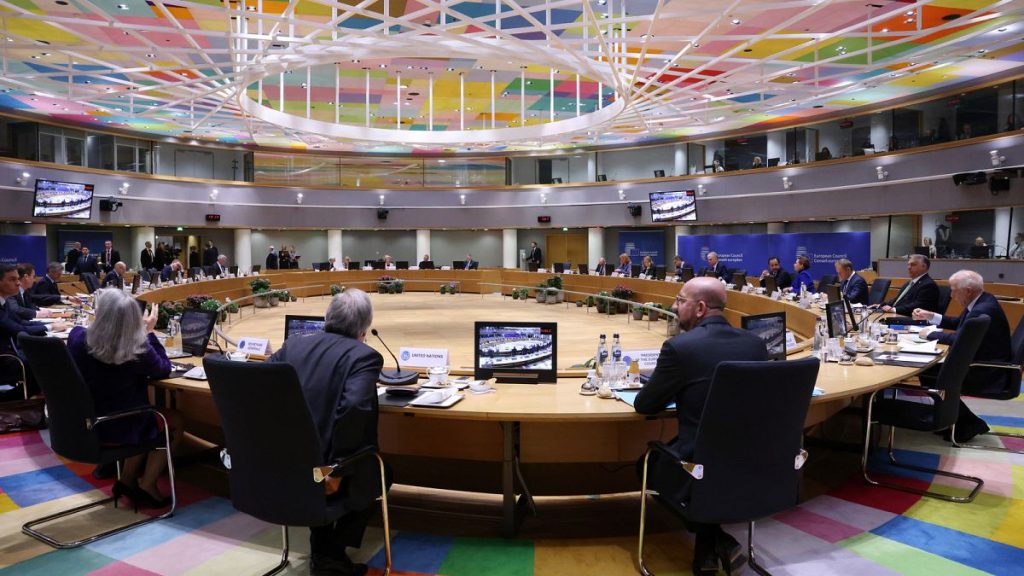EU leaders have reached a unanimous agreement calling for “an immediate humanitarian pause leading to a sustainable ceasefire” in Gaza, after months of divisions over the issue. The European Commission President Ursula von der Leyen emphasized the need for Israel to allow for an increase in humanitarian aid, stressing that the current level of daily aid entering Gaza was insufficient. The compromise statement also urges Israel to abide by the International Court of Justice’s order to prevent genocide in Gaza and not proceed with the planned invasion of the town of Rafah. The EU’s trans-Atlantic ally, the US, has also signaled support for an immediate ceasefire, marking a significant shift in its position on the conflict.
The EU leaders expressed deep concern over the humanitarian situation in Gaza, particularly with regards to the impact on civilians and the growing famine caused by the lack of aid. The statement called for additional land crossings to deliver life-saving aid, in addition to backing a new maritime corridor from Cyprus to Gaza. Despite these efforts, leaders have stressed that the maritime corridor cannot fully replace land access and have urged Israeli authorities to do more to ensure aid reaches Palestinians on the verge of famine. The UN’s World Food Programme has warned of a potential famine affecting over 500,000 people in Gaza by May.
The conclusions of the EU summit also highlighted the need to release remaining Israeli hostages held in Gaza and addressed reports of sexual violence committed by Hamas militants during previous attacks. Leaders expressed support for the adoption of further sanctions against Hamas and reiterated the bloc’s commitment to a peaceful resolution of the conflict, including guaranteeing Palestinian statehood. The EU has also pledged support for the Palestinian Authority in the West Bank to take on more responsibility and restore governance in Gaza, currently under the control of Hamas since 2007. The bloc stands ready to support a revival of the political process to bring peace to the troubled region.
The issue of the Gaza conflict has caused divisions among EU member states, with countries such as Belgium, Ireland, and Spain calling for a ceasefire while the Czech Republic and Hungary had previously blocked such calls out of fear of undermining Israel’s right to self-defense. The recent shift in position within the EU and the US marks a significant development in the international response to the conflict. EU leaders have criticized the excessive loss of Palestinian life and stressed the need for Israel to protect civilian lives while acknowledging its right to defend itself. The EU’s call for a sustainable ceasefire and humanitarian aid reflects a growing consensus on the need to address the crisis in Gaza and work towards a peaceful resolution in the region.
The EU’s backing of a ceasefire and humanitarian aid in Gaza comes at a critical time as the conflict continues to escalate, leading to a catastrophic humanitarian situation in the region. The efforts to address the crisis have been supported by the EU and the US, signaling a unified stance on the need for immediate action to protect civilians and prevent further escalation of violence in Gaza. The EU’s commitment to supporting the Palestinian Authority and restoring governance in Gaza demonstrates a long-term vision for peace and stability in the region. By calling for a sustainable ceasefire and increased aid, the EU is taking a proactive approach to addressing the crisis in Gaza and working towards a lasting resolution to the conflict.


